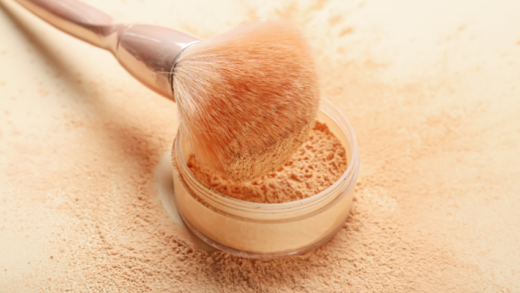The birth of a child is a joyous occasion that brings excitement, hope, and new beginnings. But for many new mothers, the postpartum period can be a time of intense emotions, physical changes, and stress. In some cases, the hormonal and psychological changes associated with childbirth can lead to a condition known as postpartum depression. Postpartum depression is a common mental health disorder that affects up to 15% of new mothers. Despite its prevalence, postpartum depression is often misunderstood and stigmatized, which can make it difficult for women to seek help. In this article, we will explore the causes, symptoms, and treatments for this melancholy, and provide tips for coping with this challenging condition.
Causes of Postpartum Depression
Postpartum depression is caused by a complex interplay of hormonal, psychological, and environmental factors. Some of the most common causes of postpartum depression include:
- Hormonal changes: The sudden drop in hormones such as estrogen and progesterone after childbirth can trigger lowness in some women.
- Genetics: Women with a family history of depression or other mental health disorders are more likely to develop postpartum depression.
- Stress and sleep deprivation: The physical and emotional demands of caring for a newborn can be overwhelming, and lack of sleep can exacerbate feelings of depression and anxiety.
- Relationship issues: Changes in the dynamic of the relationship with the partner after childbirth can lead to feelings of isolation and loneliness, which can contribute to postpartum depression.
- Previous mental health conditions: Women who have a history of depression or other mental health disorders are at a higher risk of developing postpartum depression.
Symptoms of Postpartum Depression
Postpartum depression can manifest in a variety of ways, but some of the most common symptoms include:
- Feelings of sadness, hopelessness, or emptiness that persist for longer than two weeks.
- Loss of interest in activities that were once enjoyed.
- Anxiety, irritability, or agitation.
- Changes in appetite or sleep patterns.
- Fatigue, exhaustion, or lack of energy.
- Difficulty bonding with the baby.
- Thoughts of self-harm or suicide.
If you are experiencing any of these symptoms, it is important to seek help from a mental health professional as soon as possible.
Treatments for Postpartum Depression
Fortunately, postpartum depression is a treatable condition. Some of the most effective treatments for postpartum depression include:
- Psychotherapy: Talk therapy can help new mothers process their feelings and develop coping strategies for managing lowness and anxiety.
- Medication: Antidepressants can be effective in treating such melancholy, especially when combined with therapy.
- Support groups: Connecting with other mothers who have experienced postpartum depression can provide a sense of community and support.
- Self-care: Prioritizing self-care, such as exercise, healthy eating, and getting enough sleep, can help alleviate symptoms of postnatal depression.
Coping with Postpartum Depression
In addition to seeking treatment, there are several things new mothers can do to cope with postpartum depression:
- Reach out for help: Don’t be afraid to ask for help from friends, family, or a mental health professional. You don’t have to go through this alone.
- Practice self-care: Take time for yourself each day, even if it’s just a few minutes to meditate, take a bath, or read a book. Prioritizing your own needs can help you feel more balanced and energized.
- Connect with other mothers: Joining a support group or attending a new mom’s group can provide a sense of community and support. Talking to other women who are going through similar experiences can help you feel less alone.
- Set realistic expectations: Remember that it’s normal to feel overwhelmed and stressed during the postpartum period. Be gentle with yourself and don’t set unrealistic expectations for what you should be able to accomplish.
- Focus on the present moment: Instead of worrying about the future or dwelling on the past, try to focus on the present moment. Mindfulness techniques, such as deep breathing or meditation, can help you feel more grounded and centered.
FAQs
Can postpartum depression affect fathers as well?
Yes, postpartum depression can affect fathers as well as mothers. It is often referred to as paternal postnatal depression.
How long does postnatal depression last?
Postnatal depression can last for several months to a year if left untreated. With proper treatment, however, most women recover within a few months.
Is postpartum depression the same as the “baby blues”?
No, postpartum depression is a more severe and long-lasting condition than the “baby blues,” which is a common and temporary condition that affects up to 80% of new mothers.
Is medication safe for breastfeeding mothers?
Most antidepressants are considered safe for breastfeeding mothers, but it’s important to discuss any medication with your healthcare provider.
Can postpartum depression be prevented?
There is no surefire way to prevent postpartum depression, but self-care, social support, and early treatment can help reduce the risk and severity of the condition.
Conclusion
Postpartum depression is a challenging and often misunderstood condition that affects many new mothers. It’s important for women to know that they are not alone and that there is help available. By understanding the causes, symptoms, and treatments for this lowness, new mothers can take steps to cope with this condition and begin to enjoy the joys of motherhood. Remember to prioritize self-care, seek support from friends and family, and reach out to a mental health professional if you are experiencing symptoms of postpartum depression.
























